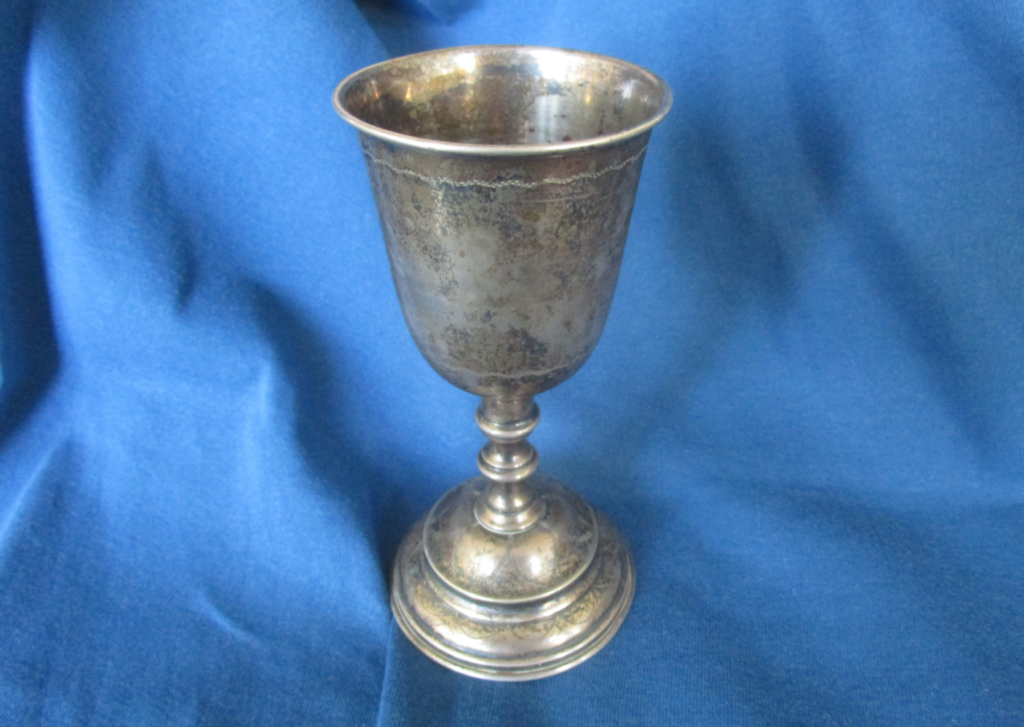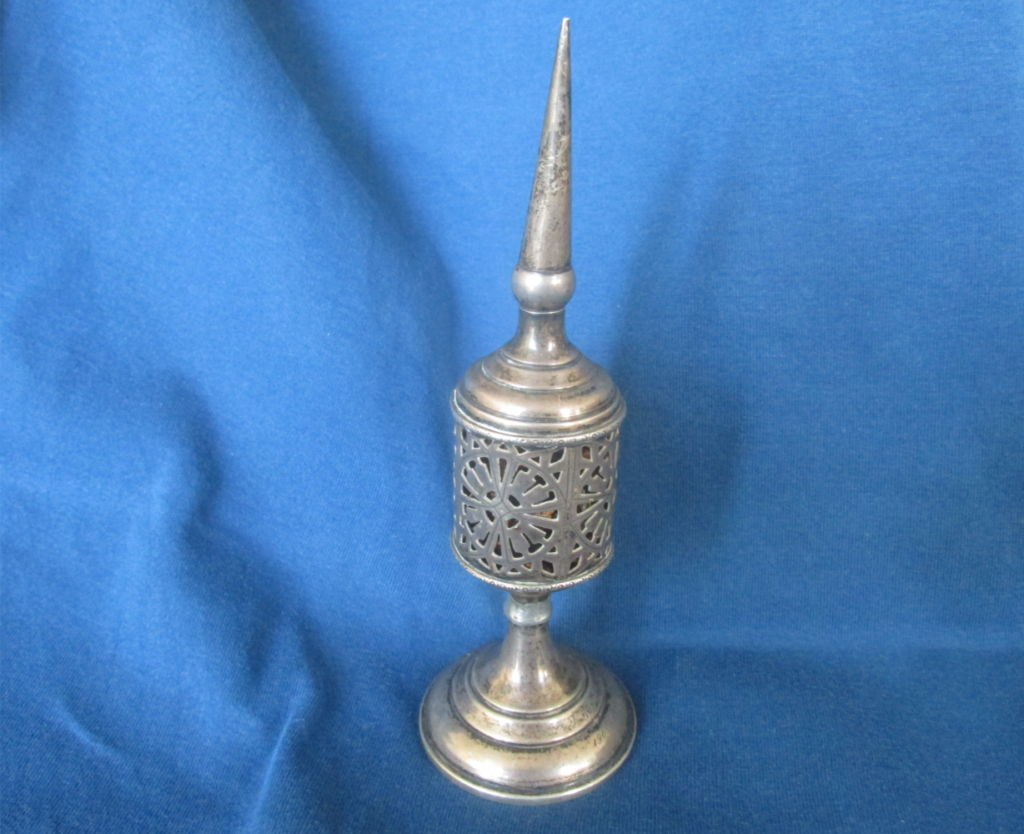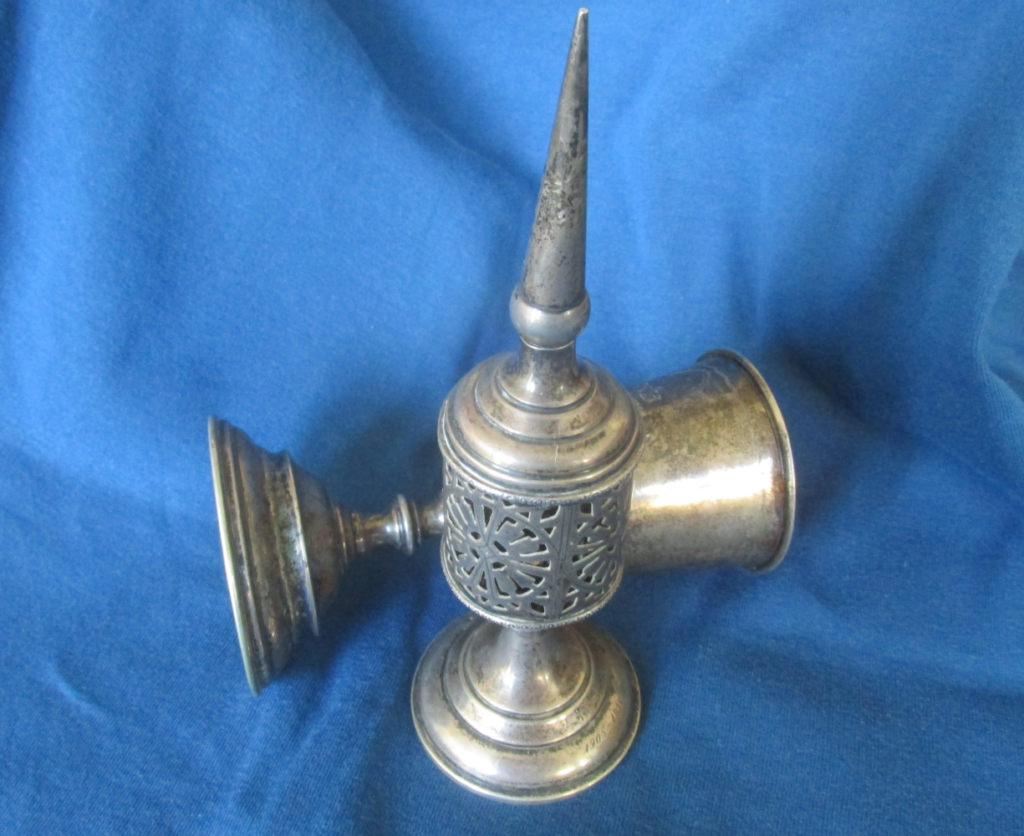KIDDUSH CUP AND BESAMIM / Marianna Bencze
These objects stood on the table every Friday evening and on the eve of every holiday, next to the lit candles and the Shabbat barches (braided bread), and the cup was filled with kosher wine. My father recited a beautiful Hebrew blessing to welcome the arrival of the Shabbat, and also at the end of the holiday to mark the separation of the holy day from other, ordinary days.
In 1941, my father was drafted in the army, then he was “requalified” for labour service. Those who remained at home, were “gathered” at the brickworks in May 1944. My mother and her two sisters buried the valuable objects they saved from requisitioning under the fence separating the yard from the garden, next to a lilac bush. The next day they were driven on foot to Debrecen, and from there they were taken directly to Auschwitz on that horrible train. This is how my grandmother and grandfather were carried off, together with my grandmother’s numerous siblings, my father’s wife and children, his father, mother and sister — as well as hundreds of Jewish women, children, elderly people, and a few young boys collected from Vámospércs. The three Katz sisters were declared capable of work, so they could stay together. Only the three of them came home to Vámospércs from the family of more than twenty in July 1945, thin as bones.
They found their home empty and looted. Only the walls and the dirty floor were left, there were no chairs, no plates, nothing. Their work equipment had also been taken, the sewing machines, the cutting table, even the lamps – only the nails remained where they used to hang. The neighbours saw the Katz girls. The son of a neighbour quickly butchered a rabbit and brought it over so they could have something to eat, but they had no pots to cook it in. So the neighbour’s son brought a pot, made a fire in the courtyard, placed the pot on some bricks, and cooked the rabbit — but the girls were unable to eat. Other neighbours also brought food: milk, a little bread, whatever they could. Some of them offered accommodation, because the girls had no bed to sleep in, but they did not go anywhere. They spent the night in the empty house. That very day one of their former seamstresses came running when she heard that they had returned. Laughing and crying at the same time, she told them that she had hid the sewing machines in their haystack, because she hoped the girls would come home to reclaim them. The next day she returned with her father and brought back the sewing machines on a wagon. This is how the three Singer machines were saved, and they are still in operable condition today. The girls could now start working to support themselves.
The next day they borrowed a hoe, and dug up the buried Kiddush cup, the besamim, the small silver pitcher and the silver sugar bowl from under the lilac bush. We still have them. There were many occasions when money was sorely needed to buy food, but the family never thought of selling these objects and parting with them. One of the Katz girls became my mother. In Debrecen, the returning deportees were welcomed by an aid organisation of JOINT, who offered them hot meals, shoes and clothes. My father was a member of this organisation. When he learned that the girls had come back, he went to meet them in Vámospércs, and took them back with him to Debrecen. They were waiting to see if anyone else from the family returned. But nobody came. This is how my father married my mother.




